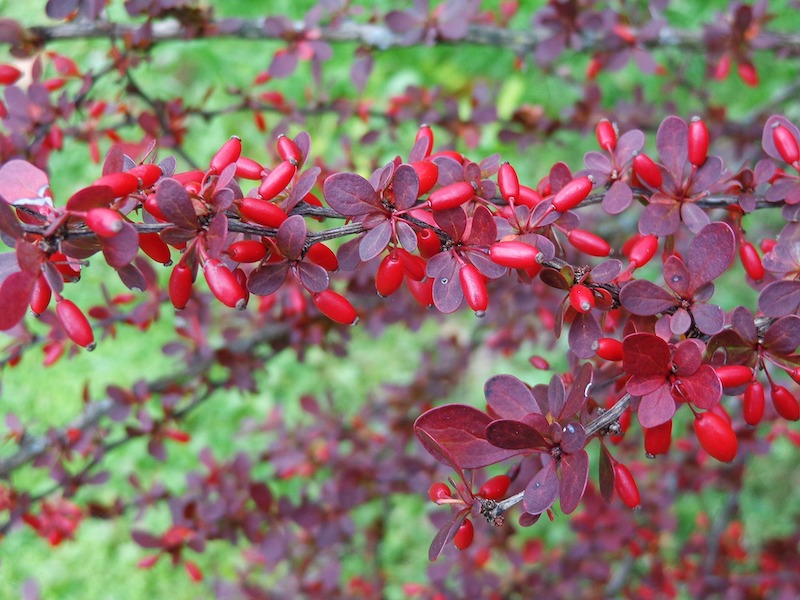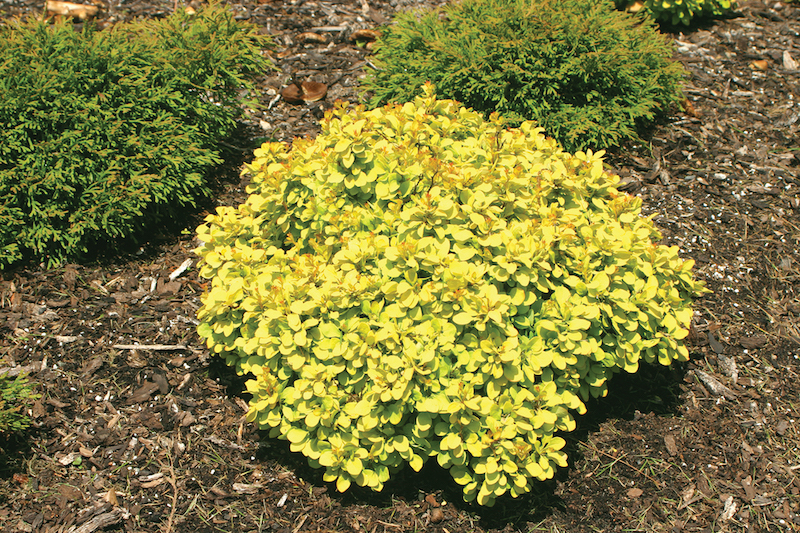Barberry bushes are poisonous to people and pets. The Barberry plant is a flowering shrub that displays dazzling foliage in the fall. Long, red berries dangle from the branches when the weather turns cold. All parts of the Barberry plant, including the flowers, berries, and leaves, are poisonous. It is important to seek medical care if your child or pet eats any part of the Barberry plant.

Is Barberry Poisonous to Children?
Barberry plants are poisonous to children. Reconsider adding this plant to your landscape if you have curious youngsters. All parts of the Barberry plant are poisonous, but this bush has oblong, red berries that may entice young children during the fall.

Is Barberry Poisonous to Dogs?
Barberry plants are mildly toxic to dogs. All parts of the Barberry shrub, from the flowers, foliage, and berries, are poisonous to puppies and adult dogs. Eating any part of the Barberry plant can cause dogs to experience abdominal pain, diarrhea, and vomiting.
Is Barberry Poisonous to Cats?
The Barberry shrub is not likely to entice cats, which is good since this plant is poisonous to felines. All parts of the Barberry plant are harmful to cats if ingested. Cats that have eaten Barberry foliage, flowers, or berries may experience abdominal pain, vomiting, and diarrhea.
Is Barberry Poisonous to Other Animals?
Barberry plants are mildly toxic to most animals. Symptoms of eating Barberry include an upset stomach, diarrhea, and vomiting. Most animals leave Barberry plants alone for this reason. Barberry is a good shrub for areas prone to damage from foraging animals since it is deer resistant.

Symptoms Of Barberry Poisoning
All parts of the Barberry bush are mildly toxic. Eating leaves, flowers, or berries can cause gastrointestinal distress, including an upset stomach, diarrhea, or vomiting. Always check with your doctor or veterinarian for guidance if you suspect Barberry poisoning.
Here are some common symptoms to look out for:
- Vomiting
- Diarrhea
- Nausea
- Pain in the Abdominal Region
Preventing Barberry Poisoning
Avoid Barberry poisoning by planting the bush in an area not accessible to young children or pets. Growing the plant out of reach will keep everyone safe while still allowing enjoyment of this colorful, flowering shrub. Use a barrier, like a fence, to keep curious kids and pets away. Another option is to consider planting alternative plants that are not toxic.
Pet Poison Helpline
If something were to happen to your furry friend, and you suspect that they are suffering from Barberry poisoning, there is a poison control hotline to call for 24/7 vet advice. It is called the Pet Poison Hotline, and their phone number is (855) 764-7661.
Sources: "Toxicology effects of Berberis vulgaris (barberry) and its active constituent, berberine: a review." Iran J Basic Med Sci. 2017 May;20(5):516-529.
 |
Author Alison Cotsonas - Published 02-11-2023 |
